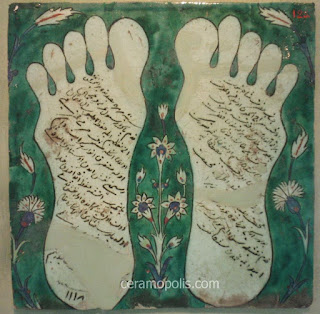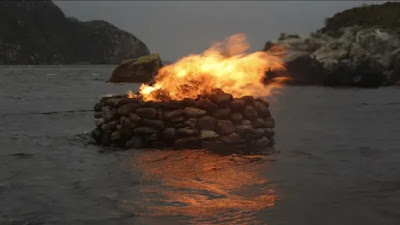Wednesday 7 November 2018
Tuesday 6 November 2018
Monday 5 November 2018
Sunday 4 November 2018
Saturday 3 November 2018
Friday 2 November 2018
Thursday 1 November 2018
Friday 31 August 2018
Durham we 29.8.18
Over the weekend I took a small rug from my previous house to my new house. At first I stared at it not knowing where it had come from. After a couple of days I became more sure that it was the rug my parents bought me when I started at Durham University a long time ago.
Seeing a video just now on fb about a refugee welcome project in Durham put the very stones of the city and the cathedral in front of me. I recognised it so much.
So I looked back at my rug and wondered how much I want to be pulled backwards in time. I have put so much effort into moving forwards. Will that all be negated by one rug which I have brought into this new house?
So there are some deep fears about the past and the future. Deep down I prefer the new. I want to destroy and then recreate a new thing. I like the impermanent. I like making things up. I like using what is at hand rather than having a big complicated plan.
I don't want to be the guardian of a museum of objects where each one ties itself round my neck and MUST NOT BE THROWN OUT. I want to be totally free to move on, bin or give away.
The obvious answer to this is - keep the old rug for a year, then donate it and mentally move on.
Seeing a video just now on fb about a refugee welcome project in Durham put the very stones of the city and the cathedral in front of me. I recognised it so much.
So I looked back at my rug and wondered how much I want to be pulled backwards in time. I have put so much effort into moving forwards. Will that all be negated by one rug which I have brought into this new house?
So there are some deep fears about the past and the future. Deep down I prefer the new. I want to destroy and then recreate a new thing. I like the impermanent. I like making things up. I like using what is at hand rather than having a big complicated plan.
I don't want to be the guardian of a museum of objects where each one ties itself round my neck and MUST NOT BE THROWN OUT. I want to be totally free to move on, bin or give away.
The obvious answer to this is - keep the old rug for a year, then donate it and mentally move on.
Saturday 25 August 2018
I can't find a poem - Sa 25.8.2018
I know I wrote a poem on sadness. It was on the left and right hand sides of a note book. But none of the note books I have flicked through contain it. So where do I look now? I can't have written it on this screen either as a draft email or as a draft blog post. I really want to read it again because I speak to sadness and find out why it arrived in me and what it was searching for. It gave me a new understanding of what I am. Maybe the poem has done its work and I can leave it behind me now. I have no choice, it has gone.
In its place I have a poem about clothes, sharp rocks on a beach and being eaten while being drowned. I will have a go at editing it, a process I have not gone into for a long time.
In its place I have a poem about clothes, sharp rocks on a beach and being eaten while being drowned. I will have a go at editing it, a process I have not gone into for a long time.
Saturday 18 August 2018
Thursday 16 August 2018
Wednesday 15 August 2018
Tuesday 14 August 2018
Monday 13 August 2018
Sunday 12 August 2018
Friday 10 August 2018
Sara Afshar and Nicola Cutcher report 'Syria Disappeared' - Friday 10th August 2018 - Syria Links
Filmmakers Sara Afshar and Nicola Cutcher reveal evidence showing the Head of Military Intelligence asked to be informed about every single death of an individual in his custody.
Thursday 9 August 2018
Mental Health TED Talk by Essam Daod - 8.8.18 - syria links - endless series
I clicked on another picture of Essam Daod and found this website of photos by Paula Bronstein:
Refugee Crisis: Lesvos, Greece
Refugee Crisis: Lesvos, Greece
New Authoritarianism article by Dr H A Hellyer in The National (UAE) - 8.8.18 syria links - endless series
Dr Hisham Al Zoubeir Hellyer's blog - the post on his mother's life
One interesting thing, among many in this blog post, is the lineage paragraph in Arabic. I have heard about this practice, but this is the first one I have seen for real.
Wednesday 4 April 2018
Wednesday 7 February 2018
Friday 26 January 2018
Monday 22 January 2018
صورة الجميلة
This picture was used for an event on facebook and I loved it so completely the moment I saw it that I downloaded it and now I am posting it here.
I don't yet know how to reverse search for it, to find the artist's and the photographer's names. I would then do a search and make a series of contrasting pictures or works I love the most, video of the artist talking about his/her work. pic of the artist too.
So a perfect small exhibition.
Saturday 20 January 2018
field niggas - khalik allah
i clicked on this on fb because of the words homeless and harlem, then his name caught my eye
https://www.streethunters.net/blog/2014/08/19/khalik-allah/ about seeing his work
https://vimeo.com/105240463 trailer - go for it, feel this
https://www.ica.art/whats-on/field-niggas read the article and then take it slowly with the q and a with the ica audience, go right to the end, question by question, give it time, give yourself time
https://vimeo.com/97047860 khamaica - this gives us his grandfather and spiritual blessings, it's hard to listen to his voice, but sink into it, you might recognise the christianity which is so familiar to us, this sound track needs transcribing - but who is the film maker?
https://vimeo.com/120740667?from=outro-embed show how he works and he speaks about it - again, who is the film maker?
https://www.youtube.com/watch?v=2tD_JRkfq_M he speaks about his work
Lexington 125
https://www.youtube.com/watch?v=5Y-JRSZCzYc the velvet underground with lou reed singing in 1966 wow i have never heard this before
https://www.youtube.com/watch?v=zxqGxuj3Bu8 bowie waiting for the man 1969-1972 i have never heard this version either
Thursday 18 January 2018
Wednesday 3 January 2018
Monday 1 January 2018
Qisetna - My questions to one of the founders, Juan Del Gado, and his answers
- What exact moment moved you (Juan) and the two other co-founders to start the Qisetna project?
In late 2013, I met two young Syrians who were living in London; we talked about setting up a project online in which we could collect stories from Syrians displaced internally, crossing borders, and resettling across Europe. I also came across a blog that was promoting Arab Culture in London, ran by media students at City University. I contacted one of them, Julia Rampen, who had graduated and started to work as a young journalist. After several meetings, we launched the bilingual blog in early 2014 as a volunteer-led project.
- How has running this project affected you, Dima and Julia most deeply?
When we started, we were not aware of the tremendous impact this project would have in our lives. In our project, we have been approaching Syrians whose lives had been turned upside down, losing relatives and friends, fleeing their hometowns, their homes, jobs... crossing borders, jumping on inflatable boats, walking hundreds of kilometers, sleeping rough in the open fields, in cities of countries across Europe...above all having been deprived of their dignity as human beings. Being in touch with them, listening to hundreds of young people, the elderly and children telling their stories of loss broke our hearts many times. Their words had a huge impact on our perception and understanding of how European Institutions failed to provide basic humanitarian assistance to them. We also learned of the extraordinary resilience of individuals determined to carry on, do whatever in their hands to survive and protect their families and friends.
Through their stories we could understand the colossal tragedy of Syrian people who, from having a normal life, were thrown into a huge vortex of uncertain future. In Qisetna, we gradually understood that our project is more than a collection of stories; when Syrians contribute with their stories and testimonies, they are challenging humanity to connect with them as human beings, victims of an unimaginable disaster.
We have become the bridge over which readers who find difficult to understand this terrible war, can access Syrians as people who love music and the arts, individuals with an ancient culture and identity, who mainstream media have overlooked in the many years of this conflict.
Last month we received the National Archive and Community Award (ACA), and also were shortlisted for the Arab British Culture Award 2017
We were thrilled with the recognition of our work which we wanted to extend to all our supporters and contributors. More than ever, we realise how important this project is to preserve the cultural identity of the Syrian diaspora for future generations to have access to first hand stories from those who lived through displacement and loss.
Subscribe to:
Posts (Atom)
































